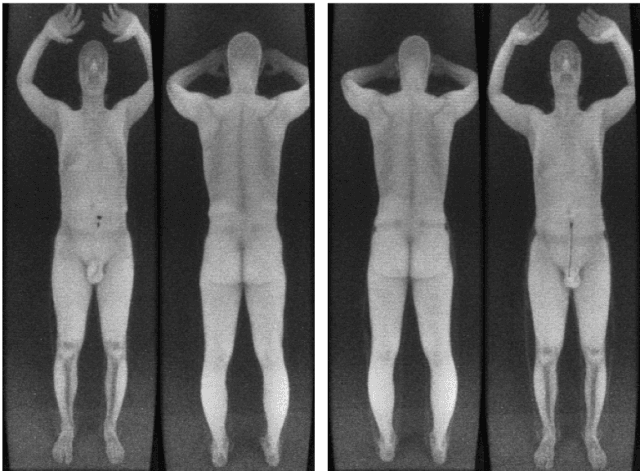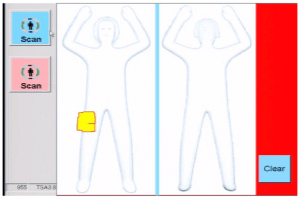With little fanfare, the Department of Homeland Security has updated Transportation Security Agency protocols to make it harder for travelers to opt out of airport body scanners.
“While passengers may generally decline AIT [Advanced Imagery Technology] screening in favor of physical screening, TSA may direct mandatory AIT screening for some passengers as warranted by security considerations in order to safeguard transportation security,” the new protocols state.
In other words, it is possible for airport security to refuse a passenger’s request to opt out of the body scanner. The DHS update is rather vague about precisely who would be forced to undergo AIT screening despite their objections; the phrase “as warranted by security considerations” makes it sound like the TSA agents on-scene will now have broad discretion to insist on machine screening, if they believe such security considerations are in effect.
The bulk of the Homeland Security publication is devoted to refuting the arguments offered by travelers against using the scanners, which have been upgraded and revised considerably since their introduction.
For example, fears that AIT machines allow deviant TSA personnel to ogle passengers under their clothing are addressed with an illustration of the “generic image” presented by the system to operators, with graphical highlights to indicate the presence of suspicious objects:
It’s not as cool as what the movie “Total Recall” taught us to expect, but it’s clearly not useful to Peeping Toms, and that’s what the DHS wants to stress.
The DHS memo also emphasizes that “AIT devises at airports do not have the ability to store images.” Instead, the “generic image is maintained on the monitory only for as long as it takes to resolve any alarms.”
Reporting on the new protocols, SlashGear suspects the “scanners’ ability to single out metallic objects hidden around the body – and that might have been missed by a physical search from a TSA agent – is seen as invaluable for whoever security services believe presents a greater-than-normal risk.”
The TSA has been under a great deal of pressure to improve its performance, after embarrassing government reports and media stunts revealed its poor ability to detect contraband items.
SlashGear suspects “the change in policy could cause a few headaches at airports should travelers want to opt-out but be informed that the only way they can get to their gate is to submit to body scanning.”
The TSA would be wise to have a public-relations campaign ready to deal with these objections. It will likely prove easier to sell the changes to travelers at a time of heightened concern about terrorism… a point often raised by civil-liberties activists who argue that expansions to government surveillance are always pushed when the public is worried and vulnerable.


COMMENTS
Please let us know if you're having issues with commenting.